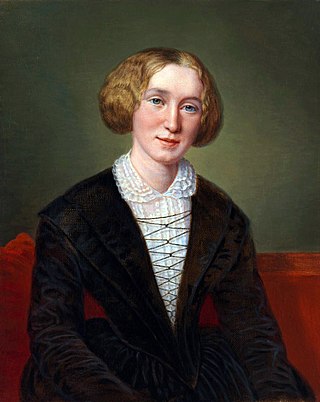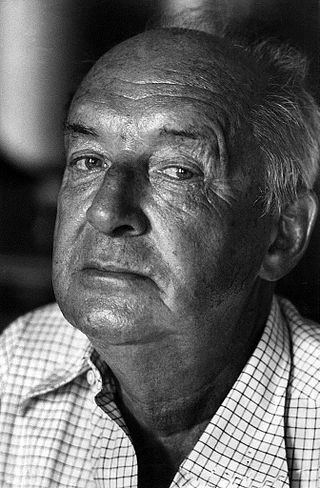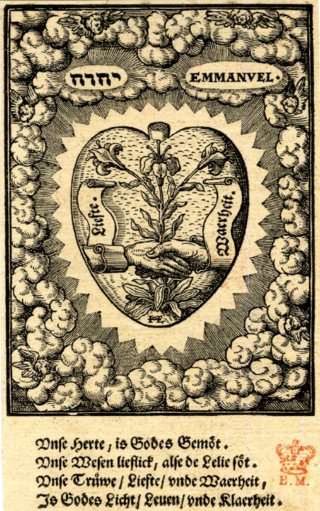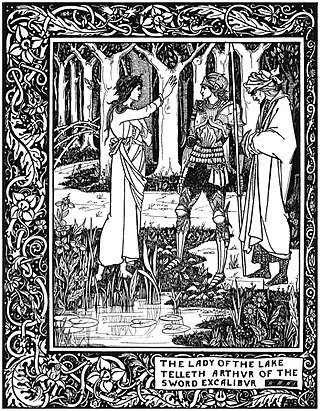Related Research Articles

Fyodor Mikhailovich Dostoevsky, was a Russian novelist, short story writer, essayist and journalist. Numerous literary critics regard him as one of the greatest novelists in all of world literature, as many of his works are considered highly influential masterpieces. Dostoevsky's literary works explore the human condition in the troubled political, social, and spiritual atmospheres of 19th-century Russia, and engage with a variety of philosophical and religious themes. His most acclaimed novels include Crime and Punishment (1866), The Idiot (1869), Demons (1872), The Adolescent (1875), and The Brothers Karamazov (1880). His 1864 novella Notes from Underground is considered to be one of the first works of existentialist literature.

Mary Ann Evans, known by her pen name George Eliot, was an English novelist, poet, journalist, translator, and one of the leading writers of the Victorian era. She wrote seven novels: Adam Bede (1859), The Mill on the Floss (1860), Silas Marner (1861), Romola (1862–1863), Felix Holt, the Radical (1866), Middlemarch (1871–1872) and Daniel Deronda (1876). As with Charles Dickens and Thomas Hardy, she emerged from provincial England; most of her works are set there. Her works are known for their realism, psychological insight, sense of place and detailed depiction of the countryside. Middlemarch was described by the novelist Virginia Woolf as "one of the few English novels written for grown-up people" and by Martin Amis and Julian Barnes as the greatest novel in the English language.

Jane Austen was an English novelist known primarily for her six novels, which implicitly interpret, critique, and comment upon the English landed gentry at the end of the 18th century. Austen's plots often explore the dependence of women on marriage for the pursuit of favourable social standing and economic security. Her works are implicit critiques of the novels of sensibility of the second half of the 18th century and are part of the transition to 19th-century literary realism. Her use of social commentary, realism, wit, and irony have earned her acclaim amongst critics and scholars.

The Tragedy of Romeo and Juliet, often shortened to Romeo and Juliet, is a tragedy written by William Shakespeare early in his career about the romance between two Italian youths from feuding families. It was among Shakespeare's most popular plays during his lifetime and, along with Hamlet, is one of his most frequently performed. Today, the title characters are regarded as archetypal young lovers.

Vladimir Vladimirovich Nabokov, also known by the pen name Vladimir Sirin, was a Russian-American novelist, poet, translator, and entomologist. Born in Imperial Russia in 1899, Nabokov wrote his first nine novels in Russian (1926–1938) while living in Berlin, where he met his wife. He achieved international acclaim and prominence after moving to the United States, where he began writing in English. Nabokov became an American citizen in 1945 and lived mostly on the East Coast before returning to Europe in 1961, where he settled in Montreux, Switzerland.

William Shakespeare was an English playwright, poet and actor. He is widely regarded as the greatest writer in the English language and the world's pre-eminent dramatist. He is often called England's national poet and the "Bard of Avon". His extant works, including collaborations, consist of some 39 plays, 154 sonnets, three long narrative poems and a few other verses, some of uncertain authorship. His plays have been translated into every major living language and are performed more often than those of any other playwright. Shakespeare remains arguably the most influential writer in the English language, and his works continue to be studied and reinterpreted.

Ralph Vaughan Williams was an English composer. His works include operas, ballets, chamber music, secular and religious vocal pieces and orchestral compositions including nine symphonies, written over sixty years. Strongly influenced by Tudor music and English folk-song, his output marked a decisive break in British music from its German-dominated style of the 19th century.

Frances Brooke was an English novelist, essayist, playwright and translator. Hers was the first English novel known to have been written in Canada.

Hilda Doolittle was an American modernist poet, novelist, and memoirist who wrote under the name H.D. throughout her life. Her career began in 1911 after she moved to London and co-founded the avant-garde Imagist group of poets with American expatriate poet and critic Ezra Pound. During this early period, her minimalist free verse poems depicting Classical motifs drew international attention. Eventually distancing herself from the Imagist movement, she experimented with a wider variety of forms, including fiction, memoir, and verse drama. Reflecting the trauma she experienced in London during the Blitz, H.D.'s poetic style from World War II until her death pivoted towards complex long poems on esoteric and pacifist themes.
This article contains information about the literary events and publications of 1731.
A libertine is a person questioning and challenging most moral principles, such as responsibility or sexual restraints, and will often declare these traits as unnecessary or undesirable or evil. A libertine is especially someone who ignores or even spurns accepted morals and forms of behaviour observed by the larger society. The values and practices of libertines are known collectively as libertinism or libertinage and are described as an extreme form of hedonism or liberalism. Libertines put value on physical pleasures, meaning those experienced through the senses. As a philosophy, libertinism gained new-found adherents in the 17th, 18th, and 19th centuries, particularly in France and Great Britain. Notable among these were John Wilmot, 2nd Earl of Rochester, and the Marquis de Sade.

Thomas Kinsella was an Irish poet, translator, editor, and publisher. Born outside Dublin, Kinsella attended University College Dublin before entering the civil service. He began publishing poetry in the early 1950s and, around the same time, translated early Irish poetry into English. In the 1960s, he moved to the United States to teach English at universities including Temple University. Kinsella continued to publish steadily until the 2010s.

Ancrene Wisse is an anonymous monastic rule for anchoresses written in the early 13th century.

The Familia Caritatis, also known as the Familists, was a mystical religious sect founded in the sixteenth century by Henry Nicholis, also known as Niclaes. Familia Caritatis translates from Latin into "Family of Love", and in other languages, "Hus der Lieften", "Huis der Liefde" and "Haus der Liebe".
Laurence Lerner, often called Larry, was a South African-born British literary critic, poet, novelist, and lecturer, recognized for his achievement with his election to The Royal Society of Literature.
"The Garden" is a widely anthologized poem by the seventeenth-century English poet, Andrew Marvell. The poem was first published posthumously in Miscellaneous Poems (1681). “The Garden” is one of several poems by Marvell to feature gardens, including his “Nymph Complaining for the Death her Fawn,” “The Mower Against Gardens,” and “Upon Appleton House.”

The reception history of Jane Austen follows a path from modest fame to wild popularity. Jane Austen (1775–1817), the author of such works as Pride and Prejudice (1813) and Emma (1815), has become one of the best-known and most widely read novelists in the English language. Her novels are the subject of intense scholarly study and the centre of a diverse fan culture.

Jane Austen lived her entire life as part of a family located socially and economically on the lower fringes of the English gentry. The Rev. George Austen and Cassandra Leigh, Jane Austen's parents, lived in Steventon, Hampshire, where Rev. Austen was the rector of the Anglican parish from 1765 until 1801. Jane Austen's immediate family was large and close-knit. She had six brothers—James, George, Charles, Francis, Henry, and Edward—and a beloved older sister, Cassandra. Austen's brother Edward was adopted by Thomas and Elizabeth Knight and eventually inherited their estates at Godmersham, Kent, and Chawton, Hampshire. In 1801, Rev. Austen retired from the ministry and moved his family to Bath, Somerset. He died in 1805 and for the next four years, Jane, Cassandra, and their mother lived first in rented quarters and then in Southampton where they shared a house with Frank Austen's family. During these unsettled years, they spent much time visiting various branches of the family. In 1809, Jane, Cassandra, and their mother moved permanently into a large "cottage" in Chawton village that was part of Edward's nearby estate. Austen lived at Chawton until she moved to Winchester for medical treatment shortly before her death in 1817.
A novel is an extended work of narrative fiction usually written in prose and published as a book. The English word to describe such a work derives from the Italian: novella for "new", "news", or "short story ", itself from the Latin: novella, a singular noun use of the neuter plural of novellus, diminutive of novus, meaning "new". According to Margaret Doody, the novel has "a continuous and comprehensive history of about two thousand years", with its origins in the Ancient Greek and Roman novel, Medieval Chivalric romance, and in the tradition of the Italian Renaissance novella. The ancient romance form was revived by Romanticism, in the historical romances of Walter Scott and the Gothic novel. Some novelists, including Nathaniel Hawthorne, Herman Melville, Ann Radcliffe, and John Cowper Powys, preferred the term "romance". Such "romances" should not be confused with the genre fiction romance novel, which focuses on romantic love. M. H. Abrams and Walter Scott have argued that a novel is a fiction narrative that displays a realistic depiction of the state of a society, while the romance encompasses any fictitious narrative that emphasizes marvellous or uncommon incidents. Works of fiction that include marvellous or uncommon incidents are also novels, including Mary Shelley's Frankenstein, J. R. R. Tolkien's The Lord of the Rings, and Harper Lee's To Kill a Mockingbird.

Romance, is a "a fictitious narrative in prose or verse; the interest of which turns upon marvellous and uncommon incidents". This genre contrasted with the main tradition of the novel, which realistically depict life. These works frequently, but not exclusively, take the form of the historical novel. Walter Scott describes romance as a "kindred term", and many European languages do not distinguish between romance and novel: "a novel is le roman, der Roman, il romanzo".
References
- ↑ George Watson; Ian R. Willison (1971). The New Cambridge Bibliography of English Literature: 1660–1800. Cambridge University Press. pp. 1968–. ISBN 978-0-521-07934-1.
- ↑ Charlotte E. Morgan (1 June 2010). The Rise of the Novel of Manners: A Study of English Prose Fiction Between 1600 and 1740. Wildside Press LLC. pp. 112–. ISBN 978-1-4344-2126-5.
- ↑ Brian Corman (2008). Women Novelists Before Jane Austen: The Critics and Their Canons. University of Toronto Press. pp. 202–. ISBN 978-0-8020-9770-5.